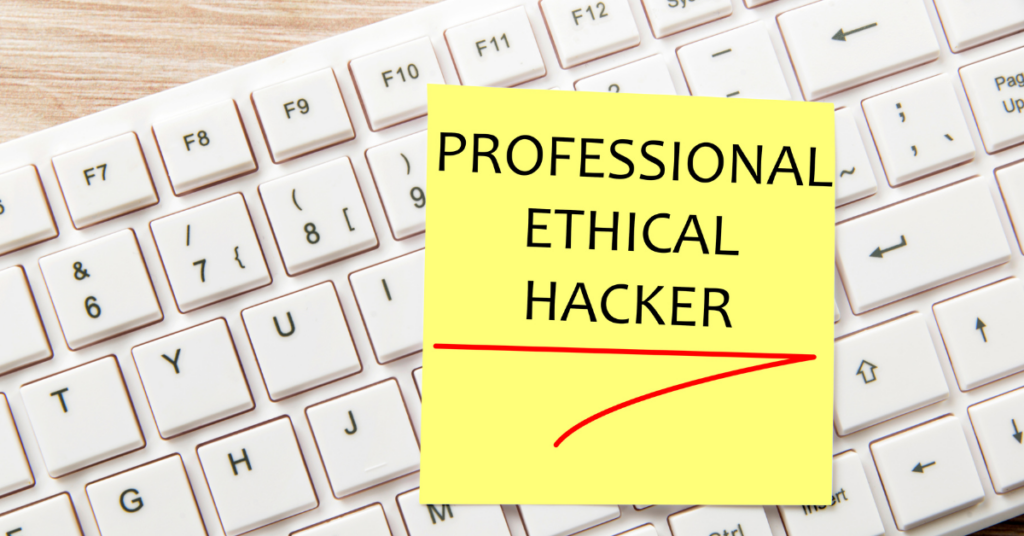How to Become Ethical Hacker: 9 Crucial Steps A Step-by-step Guide

How to become ethical hacker, and what does it entail? In January 2023, Google offered ₹18,00,000 to two Indian hackers as part of its bug bounty program. Similarly, in 2021, an Indian girl named Aditi Singh won more than ₹22,00,000 from Microsoft for finding a bug in the Microsoft Azure cloud system. For clarity’s sake, a bug bounty program is essentially a penetration testing program where ethical hackers find vulnerabilities or bugs in the system and report or fix them. Several other global as well as Indian organizations like Swiggy and Zerodha offer bug bounty programs for ethical hackers to strengthen their security systems, and this has led to a massive demand for ethical hackers. This blog, therefore, serves as a comprehensive guide to building a career in ethical hacking.
In this blog, we will learn:
- What is Ethical Hacking?
- What Do Ethical Hackers Do?
- How to Become an Ethical Hacker: Step-by-step
- Frequently Asked Questions on How to Become Ethical Hacker
What is Ethical Hacking?
An in-depth understanding of ethical hacking is the prerequisite for how to become ethical hacker. Ethical hacking mainly refers to hacking for legitimate purposes. Contrary to malicious cyberattacks, ethical hacking is identifying malware and other potential security issues.
Let’s understand this better with an analogy: The concept of ethical hacking is similar to vaccination. In vaccination, the body’s immune system is intentionally exposed to certain bacteria or viruses. This happens so that the body can build resistance to viruses and fight diseases in the future. Simply put, the immune system is deliberately exposed to weaknesses to prevent a greater attack in the future. Ethical hacking is, therefore, based on a similar concept. It is a cybersecurity practice in which IT or cybersecurity professionals launch simulated cybersecurity attacks on an organization’s network. As a matter of fact, its purpose is to assess potential vulnerabilities that a network might be exposed to. Ethical hacking essentially helps in cybersecurity risk mitigation by identifying potential attacks and taking preventive steps to counter them.
ALSO READ: What is Ethical Hacking and its Types?
What Do Ethical Hackers Do?
Before you learn how to become ethical hacker, let’s go through the day-to-day responsibilities of an ethical hacker—also called a white-hat hacker. It should help you understand what skills or ethical hacking frameworks you need to know:
- Conduct a vulnerability assessment of existing cybersecurity systems within an organization. This will help identify issues or potential loops that can cause breaches.
- Do controlled hacking by simulating real-time computer system attacks. In essence, this helps expose security gaps.
- Conduct regular security audits to ensure compliance and enhance risk management.
- Conduct security awareness and training for other team members.
- Prepare extensive reports and ensure documentation of security audits.
ALSO READ: How To Make A Career In Ethical Hacking
How to Become Ethical Hacker: Step-by-step
The primary challenge with planning how to become ethical hacker lies in creating an action plan or roadmap. Therefore, here’s a step-by-step process on how to become a certified ethical hacker:
1. Learn Computer Network and Information Security Fundamentals
The first step in your journey on how to become an ethical hacker is to get familiar with the fundamentals of computer networks and information security. It essentially involves mastering concepts like network layers, wireless signals, protocols, firewalls, Virtual Private Networks (VPNs), encryption, and penetration testing.
2. Learn Programming Languages
The path of how to become ethical hacker also involves learning programming languages like SQL, Ruby, Perl, C++, Java, PHP, and Python. In fact, programming and coding knowledge enable ethical hackers to dissect codes, break through the system, and alter system scripts. Moreover, it enables ethical hackers to also build security assessments and encryption tools.
3. Know About Operating Systems
Another critical step is learning popular operating systems used for ethical hacking such as Ubuntu, Kali Linux, and BackTrack. Focus primarily on how these systems function, what tools they offer, and their vulnerabilities.
4. Create Virtual Environments
If you want to start with basic ethical hacking, create a virtual environment or hacking lab on your system. It essentially involves installing a virtual machine for hacking by using virtualization software like VMware Fusion and V2 Cloud. These enable penetration testing without impacting the main operating system.
ALSO READ: The Ultimate Guide to Network Security Firewalls: Keep Your Data Safe
5. Learn Cybersecurity Skills
Once you gain theoretical knowledge about cybersecurity and ethical hacking frameworks, the next step is to focus on skill-based learning. Some of the top ethical hacking skills to learn are:
- Computer networking
- Cloud computing
- IoT hacking
- Cryptography
- Vulnerability analysis
- Penetration testing
- Computer programming
- Reverse engineering
- Wireless network hacking
- Intrusion detection
- Network security control
You can learn these skills by doing internships or projects on ethical hacking. Another common way is to pursue an online ethical hacker course taught by industry experts.
6. Work on Penetration Testing Projects
Practical projects are a crucial factor in showcasing your expertise on your journey on how to become ethical hacker. Add all such projects on a CV. You can practice real-time penetration on the following platforms, too:
Apart from these, you can also participate in bug bounty programs. Check BugBase to find out about various bounty programs.

7. Learn Ethical Hacking Tools
Doing practical projects on ethical hacking is an excellent way to learn the fundamentals and boost your confidence. However, you also need to be familiar with ethical hacking tools for network scanning, vulnerability scanning, figuring out passwords, spoofing, and wireless hacking. Some of the most popular tools are:
8. Get Certified
After gaining some experience in ethical hacking, you can start applying for ethical hacker job opportunities on LinkedIn or Indeed, or through website career pages of various organizations hiring for this role. Furthermore, if you want to gain more credibility and demonstrate your expertise in ethical hacking, you can seek certifications. If you are still pondering how to become a certified ethical hacker, here are some globally recognized certifications that could add value to your CV:
- CompTIA PenTest+
- Global Information Assurance Certification (GIAC) Web Application Penetration Tester (GWAPT)
- GIAC Penetration Tester Certification (GPEN)
9. Gain Expertise
Learning skills and knowledge is not a one-off thing: Even after you secure a job or become an independent ethical hacker, it is essential to constantly enhance your expertise. This requires keeping up with the latest ethical hacking trends related to practices, frameworks, tools, and industry-specific news. Stay updated by reading popular blogs on ethical hacking, following newsletters, and connecting with industry stalwarts. YouTube videos and podcasts are excellent resources for learning about cybersecurity/ethical hacking.
ALSO READ: Ethical Hacking vs Cyber Security: Important Differences You Should Know About
Frequently Asked Questions
1. Is Ethical Hacking a Good Career?
Yes, ethical hacking is an excellent career choice, especially in today’s fast-moving technological landscape. As technology evolves, cybersecurity risks will also become more severe. Hence, there will be a high demand for ethical hackers to ensure data protection. Moreover, it is a future-proof career, and now is the best time to work on how to become ethical hacker.
2. Who is Hiring Ethical Hackers?
Industries like tech, finance, agriculture, and media are integrating digital technologies for data management, and analysis, and other relevant activities. As a result, all the above-mentioned industries are hiring ethical hackers. In addition to this, both private and government organizations are also hiring ethical hackers to ensure data security.
3. What is Ethical Hacker Salary?
An ethical hacker is one of the highest-paying roles in the tech industry today. According to Glassdoor, the average annual salary of an ethical hacker in India is ₹38,20,440. Their salary majorly depends on factors like skills, practical experience, and knowledge of tools.
ALSO READ: Ethical Hacker Salary in India with Future Career Path
4. Difference Between Hacker and Ethical Hacker
The key difference between an ethical hacker and a hacker is the legality with which they operate. For instance, a hacker illegally breaches an organization’s security system to steal confidential data, install malware, or destroy the system. This leads to significant financial and business losses for companies. On the contrary, ethical hackers are professionals who are authorized by organizations to assess the security system. They identify vulnerabilities and recommend measures to strengthen data protection practices.
To conclude, growing cybersecurity threats will create a huge demand for ethical hackers. However, it will also result in intense competition, allowing only the best candidates to secure high-paying ethical hacking jobs. Hence, you must focus on skill development and gaining in-depth knowledge to gain a competitive edge. Emeritus’ online cybersecurity courses can support you on the path of how to become ethical hacker. It teaches you relevant technical and soft skills and offers the latest industry insights. The ethical hacker course also offers an excellent opportunity to connect with other learners and expand your professional network. Explore these online cybersecurity courses today and become a skilled ethical hacker.
Write to us at content@emeritus.org



